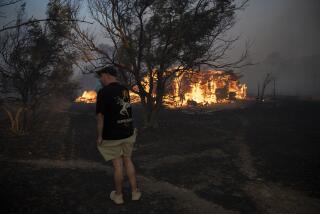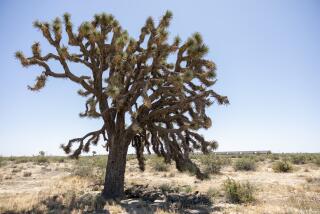Readers React: What nature has in store for people
Re “The myth of the wild,” Opinion, April 29
Jonah Goldberg raises an important issue by pointing out that the phrase “pristine wilderness” is meaningless.
In fact, there’s vigorous debate among environmentalists about what our goals should be when it comes to doing right by Mother Nature. Journalist Emma Marris’ book, “Rambunctious Garden,” is a thought-provoking analysis of different strategies.
Goldberg advocates geoengineering without worrying too much about unintended consequences. To Goldberg, this is preferable to severely limiting our use of fossil fuels, which to his conservative mind is bad for business.
The ultimate exercise of geoengineering would be to limit population growth. That would definitely be bad for business, but current population trends have only two possible outcomes: a big decrease in the birthrate, or a big increase in the death rate.
Our biosphere is on the brink of catastrophe on a scale humans have not seen. What an exciting time to be alive.
Peter Coonradt
Redlands
Goldberg is correct about the inaccuracy of the idea that the Americas were untouched by culture before 1492. Though geographers, anthropologists and environmentalists have known this idea to be false since the late 20th century, so integral to our identity is our connection with this mythical wilderness that I must point out the falsehood in every college class I teach on representations of nature in world literature.
Though it no longer informs environmental policy, Goldberg builds on the pristine myth to construct a false analogy: Since we have been altering
nature for millenniums, and furthermore we destroy environments that harbor pathogens, we needn’t preserve any natural spaces at all — and if we want to do so, market forces will do the preserving.
I think that the market forces behind the Fukushima nuclear disaster, the Exxon Valdez oil spill and the Deepwater Horizon explosion have shown the fallacy of that argument.
Philip Walsh
Northridge
More to Read
A cure for the common opinion
Get thought-provoking perspectives with our weekly newsletter.
You may occasionally receive promotional content from the Los Angeles Times.










